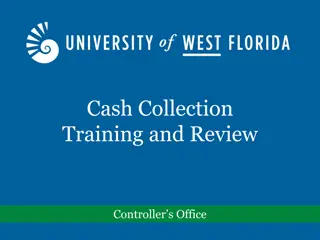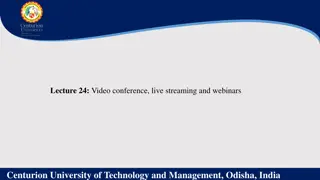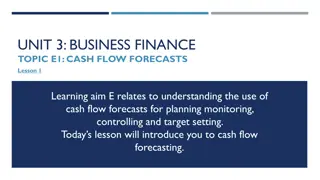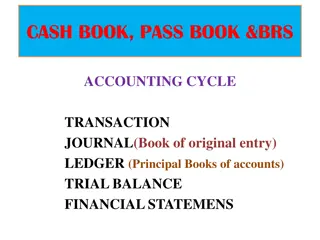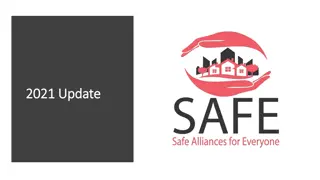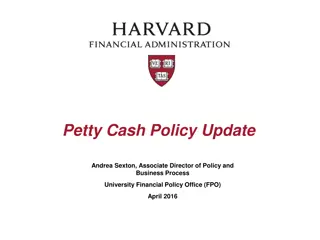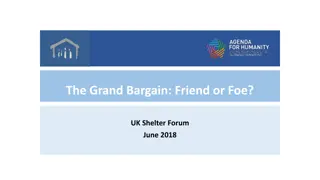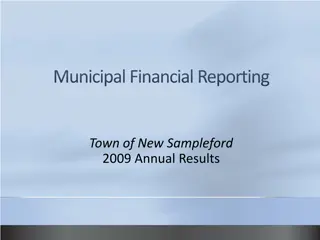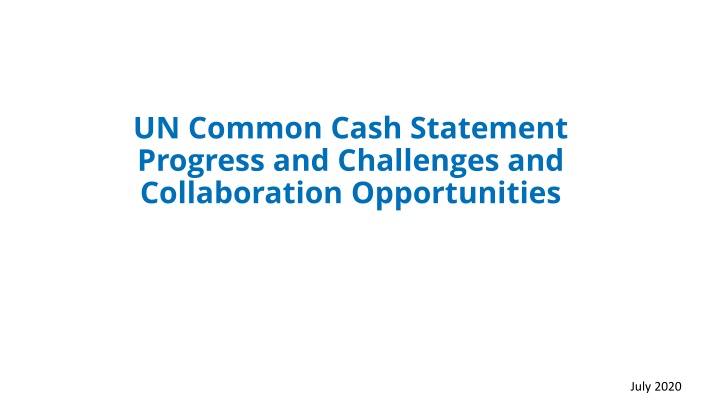
Collaborative Procurement Challenges and Opportunities in UN Common Cash Statement
Explore the progress, challenges, and collaboration opportunities in UN Common Cash Statement, focusing on collaborative procurement, interoperability challenges, and country-specific action plans. Discover how UNICEF, WFP, and UNHCR are committed to enhancing data interoperability and agency capacity. Delve into the complexities of collaboration, including donor coordination, resource implications, and government arrangements.
Download Presentation

Please find below an Image/Link to download the presentation.
The content on the website is provided AS IS for your information and personal use only. It may not be sold, licensed, or shared on other websites without obtaining consent from the author. If you encounter any issues during the download, it is possible that the publisher has removed the file from their server.
You are allowed to download the files provided on this website for personal or commercial use, subject to the condition that they are used lawfully. All files are the property of their respective owners.
The content on the website is provided AS IS for your information and personal use only. It may not be sold, licensed, or shared on other websites without obtaining consent from the author.
E N D
Presentation Transcript
UN Common Cash Statement Progress and Challenges and Collaboration Opportunities July 2020
Focus Countries Collaborative procurement Interoperability Challenges UNCCS in the COVID response Why it matters? Collaboration opportunities Content
Country specific action plans in place Harmonized transfer mechanisms Interoperability piloting Engagement with CWGs Synergies in programming (feasibility assessments, MEB, PDMs etc) in countries beyond the focus countries Focus Countries
UNICEF/ WFP/ UNHCR DSA Commitment Minimum Core Data Set for Assistance Inter-agency data hub/system on-going CashAssist collaboration UNICEF/ UNHCR UNICEF developing internal MIS system Increasing interoperability SCOPE/PRIMES Increased agency capacity committed Data Inter- Operability
Guidance on Collaborative Procurement Register of contracts with FSPs Joint tenders and piggybacking Common transfer mechanisms in +25 countries Enhanced understanding of each agencies processes and rules Collaborative Procurement
Capacities Collaboration is ambitious and requires resources, dedicated capacity and technical expertise Right people, right place Incentives Incentives in operations All agencies at technical, operational and management levels need to see the benefit that working collaboratively can bring Overall Operational considerations Cash feasibility Limited overlap in populations/ geography Neutrality of systems Ensuring data protection and integrity across complex systems and processes Controls, fee and assurance frameworks Maximizing on each others strengths and areas of expertise/ mandates etc Challenges Donor coordination Resource flow implications Government arrangements Collaboration with governments and development actors depends on their pace
Good practices Building on existing arrangements Use of each other s transfer mechanisms or procurement Coordinated frontloading of payments Joint assessment and targeting UNCCS in the COVID-19 response Challenges Rapid response Collaboration takes time National response is key not all access and pace depends on the government
Register/ enroll ones Assessed and follow up (PDM) ones Targeting of assistance based on the same data Knowing who gets what where and by whom Avoid duplication in assistance Harmonised transfer mechanisms; financial and digital illiteracy are widespread Economies of scale Leverage agency systems au lieu of creating new paralell systems Why it matters?
Parallel processes of global and field level engagements necessary CWG role and engagement Collaborative procurement accessible Data hub/system to include data from partners Sharing of progress/ learning/ challenges between collaborative arrangements Example of existing Collaboration & Opportunities




